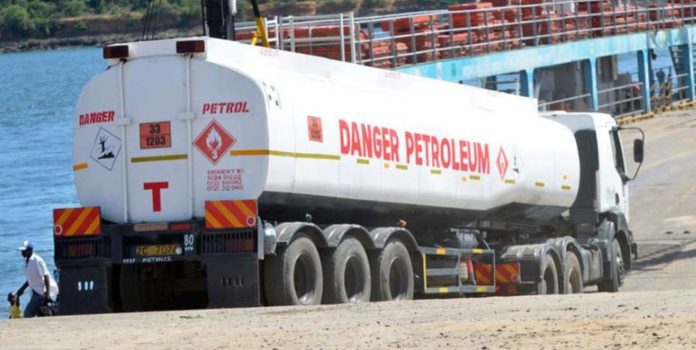In just eighteen months to May 2025, three Gulf oil firms pocketed Sh1.5 trillion from selling fuel to Kenya through the controversial G-to-G fuel deal. Apparently, 158 cargo of petroleum products were imported to Kenya by the three firms under the deal that involves Saudi Aramco, Emirates National Oil Co, and Abu Dhabi National Oil Co between April 2023 and May 2025.
The G-to-G Kenya fuel deal has been running through three main oil companies, Galana Energies, Gulf Energy, and Oryx Energies. These companies have been distributing fuel on behalf of three Gulf oil companies.
“The transaction has now been de-risked. Letters of Credit valued at Sh1.49 trillion ($11.58 billion) have been issued and Letters of Credit worth Sh1.08 trillion ($8.38 billion have been settled. No single Letter of Credit has ever been defaulted,” the Energy and Petroleum Regulatory Authority (EPRA) boss Daniel Kiptoo was quoted in the media.
“G-to-G arrangement has eliminated US Dollar spot purchases by about 140 oil marketing companies, which previously created speculative tendencies. US Dollar purchases are now being progressively undertaken by only banks issuing Letters of Credit.”
When the government initiated the deal, it blamed the Open Tender System (OTS) for creating persistent dollar shortages in the market. The government claimed that under the G-to-G deal, the Kenya shilling would appreciate against the US dollars to levels of between 115 and 120. However, the Central Bank of Kenya has since artificially maintained the local currency at 129 against the US Dollar since the first quarter of 2024.
“The G to G arrangement came in to stabilize the macroeconomic environment by providing an extended credit period for petroleum imports – that is, 180 days compared to the initial 30 days – and this freed about 30 per cent of the country’s forex to other sectors of the economy,” the National Treasury states.
According to the Ministry of Energy and Petroleum, Kenya has extended the deal with the Gulf oil firms to 2028. The three firms will continue to supply gasoline, diesel, kerosene and jet fuel under the 180-day credit arrangement until early 2028.
READ MORE: DCI on how Esther Bitutu Kadiki siphoned Sh1.5 billion from Equity Bank
This arrangement has been bogged by controversies, including revelations that Kenyan motorists have been getting overcharged through the deal. For instance, in August 2024, it was revealed that Kenyan motorists had been overcharged Sh16.4 billion at the pump. This was equivalent to Sh2.70 per litre at the pump.
The three local supplying in Kenya had refused to pass on the benefits of the deal. Instead, they were taking home disproportionately high returns over the average margins that were recorded during the previous open tender system.
“For the open tender system, the average suppliers’ premium for January-February 2023 is Sh4.51 per litre. For the government-to-government mechanism, the average suppliers’ premium for June to July 2024 is Sh7.21 per litre or Sh2.70 per litre higher than the open tender system for the sampled months,” a research report by Channoil Consulting Limited and Kurrent Technologies Limited stated.








